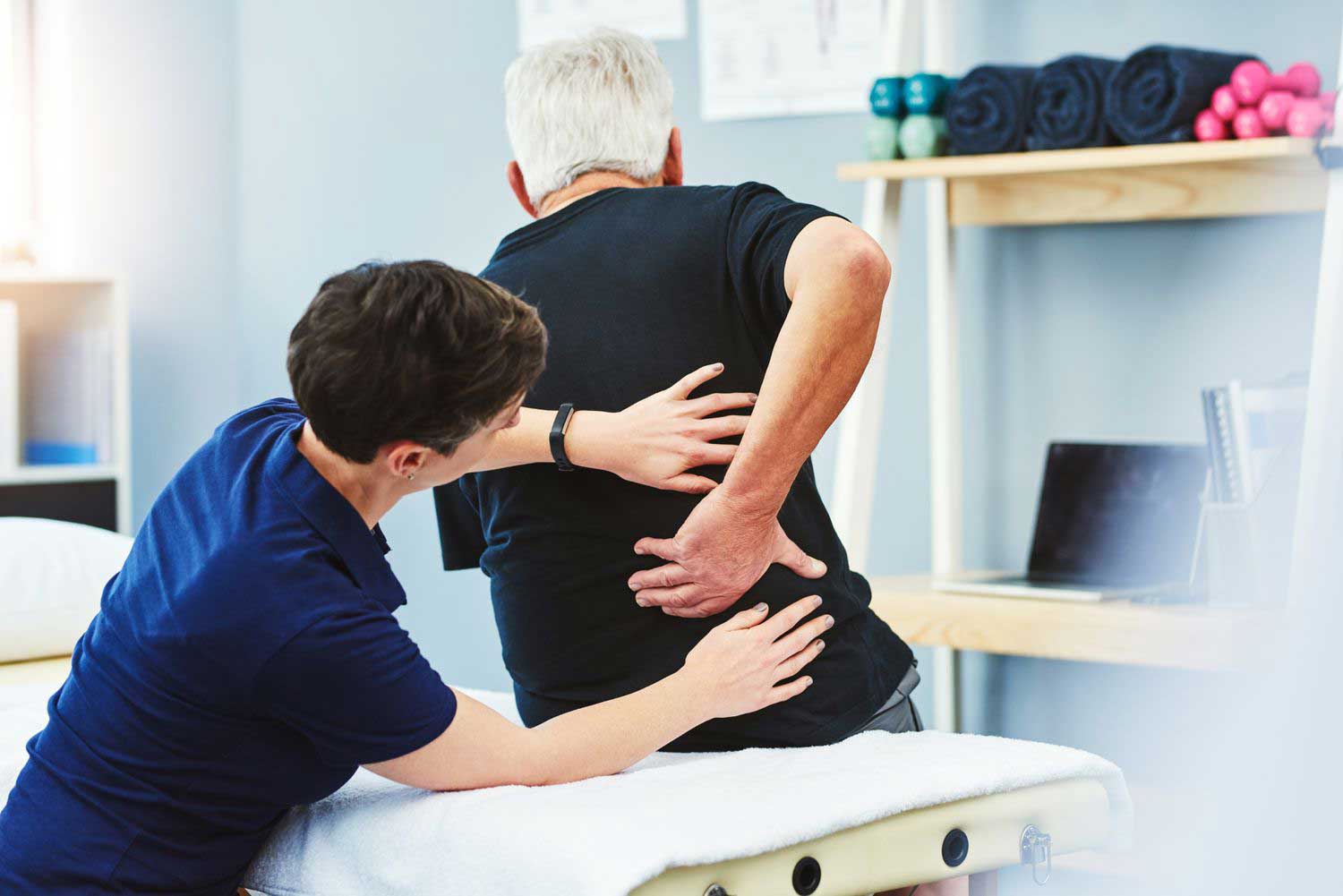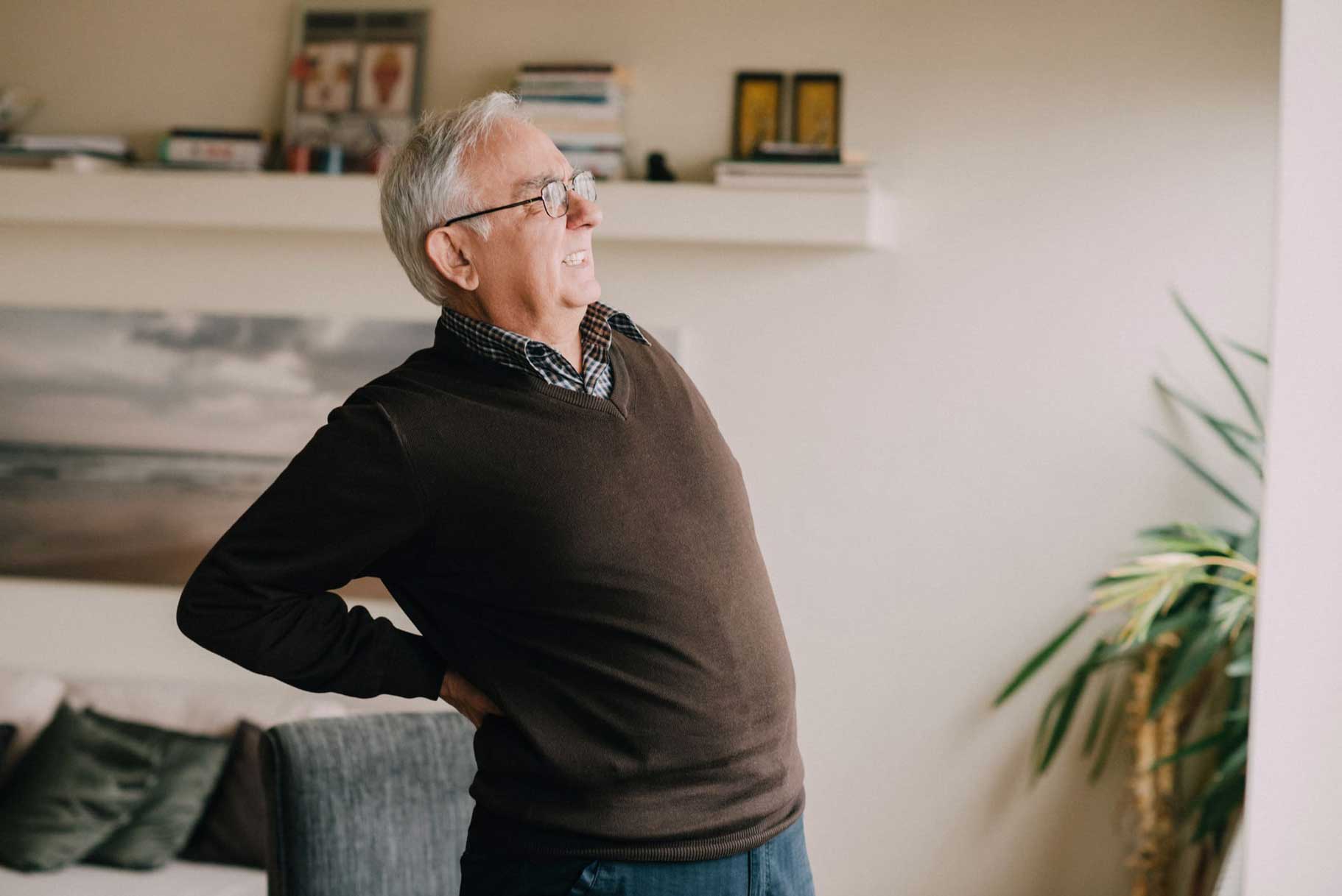20 Feb 2023 | Jennifer
Are Herniated Discs Part Of Aging?
We experience degenerative issues such as arthritis as we age. We are also more prone to experience back pain, and you may wonder whether a herniated disc or arthritis is the reason for your discomfort. Let's explore the spine and how aging affects it, and how a herniated disc may occur.
What is the structure of the spine?
You can walk, turn, bend, and sit up straight because your spine stabilizes you. As part of the central nervous system, the spinal column houses and protects the spinal cord, which is the main nerve-conduction system in the body.
Vertebrae, discs, joints, ligaments, cartilage, and nerves are all parts of your spine. Depending on where exactly in the spine the problem is, there may be discomfort or complications when the spine or spinal cord is injured.

The vertebrae are joined together by soft discs which allow the back to move and stretch. You may experience back pain or limitation in your movement if they do not fit properly. Each disc has a fibrous, harder outer layer called the annulus and a fluid-filled, spongy center called the nucleus. Each disc acts as a shock absorber to prevent the vertebrae from clashing when you move.
A herniated disc occurs when the tough outer of the disc cracks due to damage or excessive pressure, allowing the interior to protrude outward. The disc material presses on a nearby nerve resulting in pain.
Does the spine change with age?
Aging impacts the spine. The degeneration of the spine and decreased integrity of the components that comprise the back can be caused by bone thinning, disc hardness, ligament and muscle weakness, and a lack of physical activity.
The spinal disc becomes brittle with age. Injuries from physical activity, sports, smoking, excess weight, and repetitive movements can also affect the spine. Age is therefore not the only factor that causes the development of herniated discs, even though it may cause a herniated disc and back discomfort.
The chance of a herniated disc may increase if you indulge in certain conditions or behavior, including :-
- Jobs that require a lot of bending, lifting, or pulling
- Carrying extra weight, especially in the abdomen
- Smoking
- Family history
Elderly people are more prone to falls, which can damage the spine and cause herniated discs. Also, muscle mass decreases with age, which increases the risk of spinal injuries and herniated discs because the muscles that run parallel to the spinal column are crucial for maintaining its stability. The risk of damage increases when the spine loses this stability.
If you experience any back-related discomfort, numbness, or tingling, schedule an appointment with our specialist.

How to prevent a herniated disc?
-
Proper posture :- Herniated discs and other back injuries can be prevented by maintaining proper posture. Stand as straight as you can, with your shoulders relaxed and your core muscles gently engaged. Make sure to stand up every hour or so to stretch your body if you spend most of the time sitting down. Stretching prevents muscle stiffness and keeps joints flexible.
-
Keep a healthy weight :- One of the best ways for preventing herniated discs is to maintain a healthy weight. An excessive amount of weight puts pressure on your lower back.
-
Exercise :- It has been shown that regular exercise lowers the risk of developing herniated discs. Exercise improves balance and strengthens the muscles that surround the spine. For people with degenerative disc disease or a history of herniated discs, higher-impact exercises like jogging and jumping are not recommended.

 Telehealth Visits Available
Telehealth Visits Available
